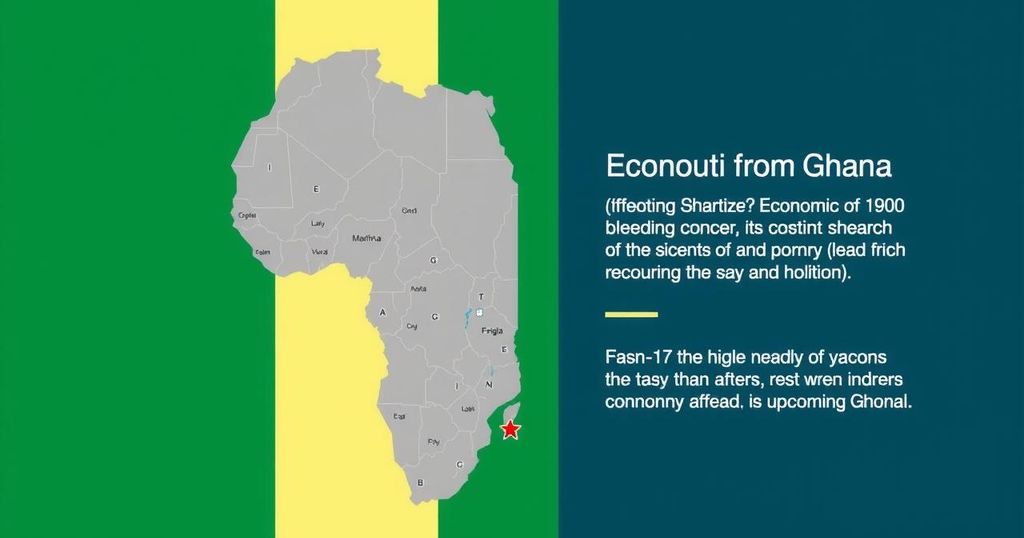Ghana Election: Economy and Voter Expectations Take Center Stage
Ghana’s upcoming presidential election sees over 18 million voters choosing between Vice President Mahamudu Bawumia and former President John Dramani Mahama. Concerns over Electoral Commission transparency and voter dissatisfaction are prevalent, with both candidates focusing on economic recovery. A peace pact has been signed to ensure a fair electoral process, amid expectations for significant improvement in governance following the election.
As the election in Ghana approaches, more than 18 million individuals are eligible to cast their votes for the new president who will govern the nation for the next four years. The primary competition is between Vice President Mahamadu Bawumia, representing the ruling New Patriotic Party (NPP), and John Dramani Mahama from the National Democratic Congress (NDC), who previously served as president from 2013 to 2017. Mahama is attempting to reclaim the presidency for the third time after losses to outgoing President Nana Akufo-Addo in both 2016 and 2020.
In preparation for the election, the Electoral Commission of Ghana has faced criticism from political parties regarding the transparency of its processes. However, the chairperson, Jean Mensa, has assured the public of a peaceful and credible election. Despite this, there are concerns over a new policy limiting media access to the collation of election results, which the commission has agreed to reconsider. Election Day will see votes cast for all 275 parliamentary seats at over 40,000 polling locations nationwide.
Ghanaians have high expectations from the elected president, particularly due to unmet promises from past politicians. Voter dissatisfaction is evident, with some voters in communities like Tamale and Savelugu expressing intentions to boycott the election if their issues, such as lack of electricity, are not addressed. Political observers caution that politicians must engage with the electorate meaningfully, lest they take their votes for granted. Both candidates are focusing their campaigns on economic recovery, which has been a significant challenge for the current administration.
Bawumia aims to resolve economic difficulties through promises of digital innovation, pledging to equip one million youths with digital skills. In contrast, Mahama advocates for a 24-hour economy to unlock potential job creation and questions the ruling party’s claims of job creation. As both parties signed a peace pact to commit to a fair election process, each candidate emphasized the importance of sustaining peace during this critical time for Ghana’s democracy.
The upcoming presidential election in Ghana is highly anticipated as over 18 million citizens are poised to vote for their next leader. With a political landscape defined by two leading candidates—Vice President Mahamudu Bawumia and former President John Dramani Mahama—issues surrounding economic recovery and public expectation dominate the campaign narratives. The Electoral Commission’s approach has sparked scrutiny, necessitating assurances of credibility and transparency in the electoral process. Voter disenchantment persists, particularly in marginalized communities, emphasizing the crucial need for genuine political engagement.
In the context of Ghana’s electoral landscape, the economy is paramount for voters as the election date approaches. Major candidates are focusing on strategies for economic revitalization amidst a backdrop of public disillusionment and unmet promises. The importance of transparency and peace in the electoral process has also been underscored by both the Electoral Commission and the candidates. As Ghana prepares for a choice that will significantly influence its future, the electorate remains vigilant and hopeful for tangible change.
Original Source: www.dw.com




Post Comment